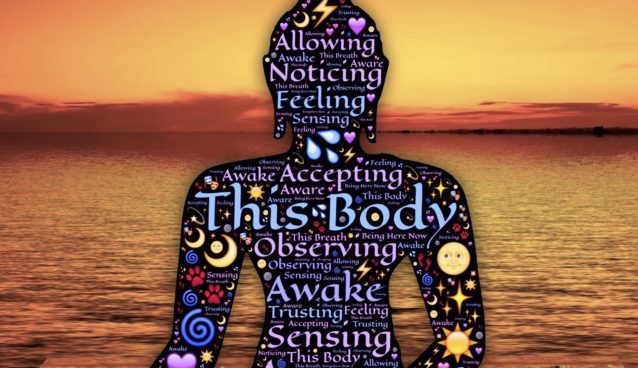EDUCATION

Table of Contents
Introduction
The word “EDUCATION” has a very wide connotation. It is hard to define. It is difficult to reconcile all the views of Education. The Concept of education is like a diamond which appears to be a different color when seen from a different angle.
From the dawn of human civilization Education has been intimately connected with human life. But the term “Education ” did not have the same meaning in the ancient and medieval period as it means today.
In olden times, the primitive men learnt lessons from the experience of life. With the advancement of civilization, the School, the teacher, books, etc. came into being in the course of time for educating the young children.
Some Great Philosophers, Psychologists, Educators of different periods, view Education differently —
According to Aristotle, education is creation of a sound mind in a sound body.
P. Nunn said education is complete development of individuality.
Froebel said education is for leading and guiding for peace and unity with God.
For Gandhi, education is all round drawing out of the best.
Ramakrishna said it is purification of the mind and heart.
For Rousseau, it is development from within.
Education for Tagore is making life in harmony with existence.
Vivekananda said education is the manifestation of the perfection already in man.
For Dewey, it is increasing social efficiency.
And many more great Philosophers, Educators defined education according to the society they lived in and on the Philosophies of life they believe.
These differences in views about education is due to –
- Complex nature of human personality,
- Complexity of human environment,
- Different theories on Philosophies of life,
- Different educational theories and practices and many more reasons.
Definitions of Education
Definitions laying stress on Inner Potentialities
Aristotle, Gandhi. Tagore, Vivekananda, Nunn, Ramakrishna comes under this category.
Aristotle speaks education as, “The creation of a sound mind in a sound body.” Education, according to him, should develop the body i.e. the physical capacities of the child and the mind which means his intellectual, emotional, moral and spiritual capacities.
Gandhi said, ” By education, I mean an all-round drawing out of the best in the child and man – body, mind and spirit.”
According to Vivekananda, ” Education is the manifestation of divine perfection already existing in man”. Education means the exposition of man’s complete individuality.
Definitions stressing the Social and Environmental aspects
In the words of John Dewey,” Education is the development of all those capacities in the individual which will enable him to control his environment and fulfill his responsibilities”.
Thomson says,” By education, I mean the influence of the environment upon the individual to produce a permanent change in his habits of behaviour, of thought and his attitude. Environment has various aspects – Physical, Social and Cultural. Education should facilitate the task of adaptation of the child to his environment”.
Education : A process of Self-Realisation
“Self-realisation” implies development of individuality in the child. Thus, education means leading out the inborn powers and potentialities and enabling the child to become what he is capable of becoming.
Functional and Operational Definition of Education
By education, we mean the natural, harmonious and progressive development of man’s innate powers by drawing out the best in his body, mind and spirit so as to produce an individual who is Culturally Refined, Emotionally Stable, Ethically Sound, Mentally Alert, Morally Upright, Physically Strong, Socially Efficient, Spiritually Enlightened, Vocationally Self-Sufficient and Internationally Liberal.

Meaning of Education
Derivative Meaning of Education
Etymologically, the word ‘Education’ is derived from the following Latin words which are as follows :-
- Educare : This means ‘to raise’ or ‘to nourish’ or ‘to bring up’.
- Educere : This implies ‘to draw out’ or ‘to lead out’.
- Educatum : This denotes ‘to train’.
- Educo : Here ‘e’ means ‘out of’ and ‘duco’ means ‘to lead’ i.e. ‘to lead out’.
Thus education means :
(i) to bring up (ii) to draw out
(iii) to lead out (iv) to nourish
(v) to raise (vi) to train

The synthesis of the meaning of these terms implies that education is ‘drawing out’ and ‘leading out’ something from within the individual by ‘bringing up’, ‘nourishing’, ‘raising’ and ‘training’.
Narrow Meaning of Education
The narrow sense of education confines education to a few specific influences. These influences are deliberately planned, chosen and employed by the community for the welfare of the young generation.
The narrow sense usually implies imparting information or giving instruction or schooling or training or making people literate or teaching or preparing for trade or vocation.
Professor Drever explains the narrow meaning of education as ” Education is a process in which and by which knowledge, character and behaviour of the young are shaped and moulded.
The narrow meaning of education includes the following :-
- Narrow type of education is imparted in planned institutions like schools.
- It is limited to the teaching of ready-made material.
- Education is regarded as synonymous with instruction.
- It is a deliberate, conscious and systematic influence exerted by the mature person i.e. the teacher, on the immature person i.e. the child.
- This type of education is intentional rather than incidental.
Wider Meaning of Education
The wider sense of education includes development of social, moral, emotional, intellectual, spiritual, physical, vocational aspects of an individual which continues from birth to death i.e. from womb to tomb.
Whatever broadens our horizon, deepens our insight, refines our emotions and stimulates our thought and feeling – are all education. It includes all influences, direct and indirect, formal and informal, deliberate or incidental, planned or unplanned. We learn whether we are conscious of this fact or not.
According to William H. Patrik ,” From the broad point of view, all life thoughtfully lived is education”.
R. C. Lodge ,” In the wider sense, all experience is said to be educative. The bite of mosquito, the taste of water melon, the experience of falling in love, of flying in an aeroplane – all such experiences have a direct educative effect on us. The child educates the parents, the pupil educates the teacher…… Everything we say, think or do, educate us. In the wider sense, life is education and education is life.
The wider meaning of education includes the following :-
- The process of education is a life-long process, from infancy to old age or form womb to tomb.
- It includes experiences gained through the various formal and informal agencies of education. We learn from home, school, church, temples and the like, cinema, club, press, travel, friends, physical and social environment.
- All experience is said to be educative.
- We receive education many a times even when we are not conscious of it.
Importance of Education
The wider concept of education is that education is a life long process. It continues from birth to death i.e. from womb to tomb.
Whatever broadens our horizon, deepens our thought, refines our emotions and stimulates our thought and feeling are all education.
The broadest horizon of education has importance in the three areas : –
- For Individual Development
- For National Development
- For International Understanding
Individual Development
Importance of education concerning an Individual includes the following:
Acquisition of Knowledge
Knowledge is power. It is knowledge that enabled humanity to make progress – materially and mentally. Intellectual training helps to tackle the problems of life successfully. Knowledge emphasises the cognitive aspect of personality. Knowledge of different subjects is essential for complete living.
Physical Development
Modern psychology recognises sound mind in sound body. There is intimate relationship between body and mind. Physical education, games and sports leads to physical development of the child. balanced development of personality means harmonious development of the body and the mind. The activity based education provides a sound development of physical growth.
Social Development
The importance of education in social development of an individual finds expression in
- Education for Social Service
- Education for Social Efficiency
The individual and the society are functionally related to each other, the individual acting on the society and the society reacting on the individual. Education provides reliable behaviour of social welfare, feeling of co-operation, fellow-feeling among the students. Education provides the knowledge of responsibility towards the society and appropriate values to adopt himself in democratic, secular and egalitarian society.
Moral Development
Man is born with some impulses and instincts like an animal. Education by supplying any individual the higher values of life, enables him to control these instinctive impulses or animal forces. These instinctive behaviours are controlled by the development of new interests through education.
Spiritual Development
Education awakens the spiritual qualities in the children so that they can adopt and adjust themselves to the changing patterns of the society. Education teaches fundamental and universal truths like love, respect for elders, religious mentality, sympathy, non-violence etc. These universal truth would fight individualism, materialism and corruption resulting in men of character, honesty and integrity. Men of such nature generate happiness and order in the world.
Cultural Development
Culture is the foundation of human behaviour. It is reflected in every thought and action, speech, manners, behaviour of an individual.
Educational importance of cultural development includes knowledge, skills, values, interests, attitudes of an individual. Education teaches an individual not to offends the feelings of others. A cultured person is neither too assertive nor too dogmatic and aggressive.
Education is primarily responsible for the conservation, enrichment and transmission of socio-cultural heritage. Educational institutions teaches about customs, modes of behaviour, values of life and cultural heritage of the society in which he lives.
Aesthetic Development
Aesthetic values are another important element of ideal life. It differentiates man from animal. Aesthetic values frees mind from all sorts of narrowness. That is why it is regarded as one of the important element of character or personality. Aesthetic value has two aspects – Appreciation of external beauties of materialism world and to create beautiful things. These mental feeling can be developed through education, with the help of literature, music, dance, paintings, work education.
Emotional Development
Activity based education can give emotional satisfaction to the child. This helps free expression of emotional behaviour. Suppression of emotional behaviour hampers healthy development of personality. emotional maturity is an essential condition of the all round development of the individuality. The project method of instruction caters the emotional development of a child.
Religious Tolerance
Education build the character of children, organise their life energies for the realisation of ideal value, ability to act decisively, effectively and courageously. Through proper education, duty and reverence can be inculcated in an individual. It promotes mutual respect for every religion and increases religious tolerance among individuals.
Vocational Efficiency
An individual must be prepared to earn his livelihood otherwise he will not be happy. Education trains individual to become financially and socially efficient. Education contributes to increase in earning skills of an individual. The productive aspect of an individual increases through education, which increases the production and national wealth.
Recreational Efficiency
Science has made our life easy-goin. As a result, the amount of leisure time has also increased. Leisure may be utilised in various creative ways. Education trains in creative activities leading to development and progress of the society. It makes lifer richer and meaningful.
Organisation of co-curricular activities, hobbies, games and sports, music, painting, dancing etc., in one hand increases the creativity of an individual and on the other hand make use of good leisure time management.
National Development
National Integration
National Unity is a pre-condition for national progress in all directions. education can bring spirit of patriotism, a love for the people for the country and ultimately for national welfare as a whole.
Importance of education for National Integration may have at least two aspects :-
- Education for Citizenship
- Education for Social and National Service
Education for the citizenship enables an individual —
- to understand the social, economic and political forces that are shaping the country,
- to be tolerant and broadminded,
- to have faith in democratic ideals of life,
- to believe in equality of men,
- to learn his livelihood in an honest way.
Education for social and national service enables an individual to be sensitive about each others feelings, dignity of labour and for national welfare, fellow feeling. Through organisation of inter-state tours and sports, visit to historical places inculcates a feeling of nationality in the individuals.
Modernisation of Society
Modernisation in all walks of life is the main objective of education. The distinctive feature of a modern society is the adoption of science and technology based education. education keeps the modern society in place with the advance of knowledge. education awakens curiosity, enquiry and judgement. Education helps to make a society based on science and cultural tradition. Education caters for rapid modernisation of society i.e. revolution in every aspect of life.
Economic Growth of the Country
Education is related to productivity of nation. Study of science, emphasis on agricultural education, vocationalisation of education, scientific and technological education, resulting in the rapid growth of economy of a country. Concepts of mass education, adult education, social education in one hand modernise the society and on the other hand increases the number of skilled hands, thus increases the productivity of a nation.
Protection of Mother Nature
Nature or natural environment is the place where human life began. Environment has components which affects us directly and indirectly. For his own good and comforts, man has been destroying his natural environment. Education on environment opens our eyes to the havoc we have brought on ourselves.
Education on environment provides basic understanding of total environment and associated problems. It develops skills and attitudes necessary to understand the environment and for conservation of resources and also control of environmental pollution.
International understanding
The respect for the rights and interests of other nations is the basis of education for international understanding. Through education the concept of world citizenship can be developed. International consciousness, independent thinking about world affairs, understanding the culture and society, mode of thinking and living, power to differentiate between truth and propaganda can only be possible through proper education.
Teaching of international language, study of world personalities, organisation of international games and sports, exhibition are some of the steps which forster the international understanding among students.



